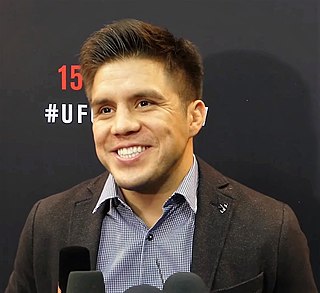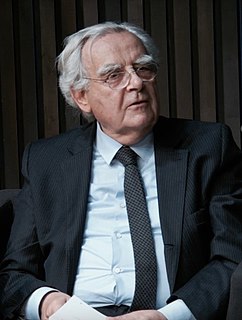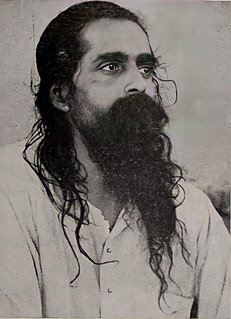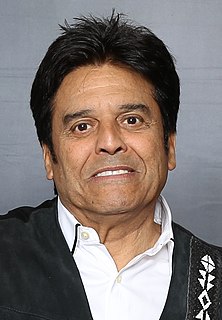Top 1200 Culture And Language Quotes & Sayings
Explore popular Culture And Language quotes.
Last updated on April 14, 2025.
Fanfiction is what literature might look like if it were reinvented from scratch after a nuclear apocalypse by a band of brilliant pop-culture junkies trapped in a sealed bunker. They don't do it for money. That's not what it's about. The writers write it and put it up online just for the satisfaction. They're fans, but they're not silent, couchbound consumers of media. The culture talks to them, and they talk back to the culture in its own language.
Since the 1960s, mainstream media has searched out and co-opted the most authentic things it could find in youth culture, whether that was psychedelic culture, anti-war culture, blue jeans culture. Eventually heavy metal culture, rap culture, electronica - they'll look for it and then market it back to kids at the mall.
Music is a universal language insofar as you don't need to know anything else about a musician that you are playing with other than that they can play music. It doesn't matter what their music is, you can find something that you can play together, with what their culture is. The dialect part of it comes into play, but nothing like the differentiation that language sets up, for example.
One way to think about what psychedelics are is as catalysts for language development. They literally force the evolution of language. You cannot evolve faster than your language because the language defines the culture of meaning. So if there's a way to accelerate the evolution of language then this is real consciousness expansion and it's a permanent thing. The great legacies of the 60's are in attitudes and language. It boils down to doing your own thing, feeling the vibe, ego-trip, blowing your mind.
The language of the culture also reflects the stories of the culture. One word or simple phrasal labels often describe the story adequately enough in what we have termed culturally common stories. To some extent, the stories of a culture are observable by inspecting the vocabulary of that culture. Often entire stories are embodied in one very culture-specific word. The story words unique to a culture reveal cultural differences.
I think one of the reasons anti-immigration state laws start to happen is they happen in states where there is an enormous influx. In these places, the dominant culture, the Anglo culture has held sway for such a very, very long time. Now, they are living in another culture, another language. They fear losing dominance and control. It is sadly human nature to find a group to scapegoat. This happens throughout man's history.
Every people, in order to remain healthy and strong, has to have a grasp of its foundation story. Culture is a chrysalis - it is protective, it takes care of you. That's what cultures are for. You cannot rob a people of language, culture, mother, father, the value of their labor - all of that - without doing vast damage to those people.
We believe we can also show that words do not have exactly the same psychic "weight" depending on whether they belong to the language of reverie or to the language of daylight life-to rested language or language under surveillance-to the language of natural poetry or to the language hammered out by authoritarian prosodies.
in order to confer their lost Nationality upon exiled Jews , the British with the help of the League of Nations began to rehabilitate the old Hebrew country, Palestine, with its long lost children. The Jews had maintained their race, religion, culture and language; and all they wanted was their natural territory to complete their Nationality. The reconstruction of the Hebrew Nation on Palestine is just an affirmation of the fact that Country, Race, Religion, Culture and Language must exist unequivocally together to form the Nation idea.
The visual is sorely undervalued in modern scholarship. Art history has attained only a fraction of the conceptual sophistication of literary criticism. Drunk with self-love, criticism has hugely overestimated the centrality of language to western culture. It has failed to see the electrifying sign language of images.
The significance of language for the evolution of culture lies in this, that mankind set up in language a separate world beside the other world, a place it took to be so firmly set that, standing upon it, it could lift the rest of the world off its hinges and make itself master of it. To the extent that man has for long ages believed in the concepts and names of things as in aeternae veritates he has appropriated to himself that pride by which he raised himself above the animal: he really thought that in language he possessed knowledge of the world.
In Europe there's kind of a reaction to the European Union, kind of a move towards some kind of regionalization. It's more advanced in some regions than others, like in Spain for example. Catelan was repressed under Franco. People spoke it, but not publicly. It's now the language of Catelonia. The Basque language is being revived, not just the language but the culture, the folk music and everything else. So you're getting more diverse societies, and it's happening in Britain as well.
When artists and philosophers talk only amongst themselves, they ignore the potential of popular culture to become a variety of dialogues with and between everyday people. Its discourse may be productive of desire and pleasure, but popular culture is also a language in which people discuss politics, religion, ethics, and action.
American Sign Language is a language. It's fun to learn, and it's different from other languages because you use your hands, you use your face, your facial expressions, and there is also an incredible culture that comes with it and an amazing community too, and through that, we can support each other.
This happens to a lot of kids from different backgrounds - they lose a lot of their parents' and grandparents' teachings, language and culture because they have to deal with another language and culture 24/7. By the time I was 44, I was terrible at Spanish. I was always intimidated whenever I had to speak it.
Language both reflects and shapes society. Culture shapes language and then language shapes culture. Little wonder that the words we use to talk to each other, and about each other, are the most important words in our language: they tell us who I am, they tell us who you are, they tell us who 'they' are.
We live in a culture that has institutionalized the oppression of animals on at least two levels: in formal structures such as slaughterhouses, meat markets, zoos, laboratories, and circuses, and through our language. That we refer to meat eating rather than to corpse eating is a central example of how our language transmits the dominant culture's approval of this activity.
You often hear attacks on international adoption as robbing a child of his or her culture, and that's both true and false. It's true that an internationally adopted child loses the rich background of history and religion and culture and language that the child was born into, but the cruel fact is that most children don't have access to the local, beautiful culture within an orphanage.
Her voice was slightly accented but her French was perfect. Someone who'd not just learned the language but loved it. And it showed with every syllable. Gamache knew it was impossible to split language from culture. That without one the other withered. To love the language was to respect the culture.
Many teachers of the Sixties generation said "We will steal your children", and they did. A significant part of America has converted to the ideas of the 1960s - hedonism, self-indulgence and consumerism. For half of all Americans today, the Woodstock culture of the Sixties is the culture they grew up with - their traditional culture. For them, Judeo-Christian culture is outside the mainstream now. The counter-culture has become the dominant culture, and the former culture a dissident culture - something that is far out, and 'extreme'.





















































